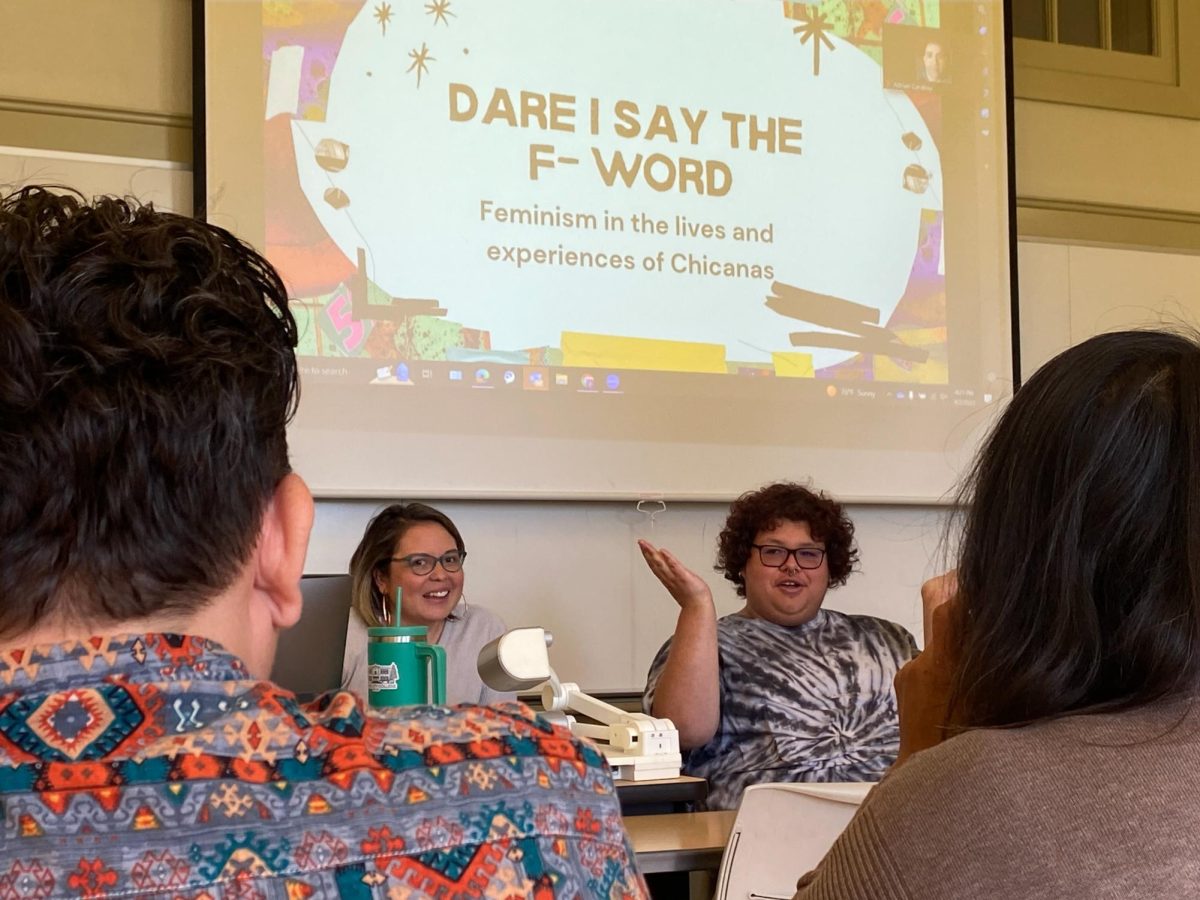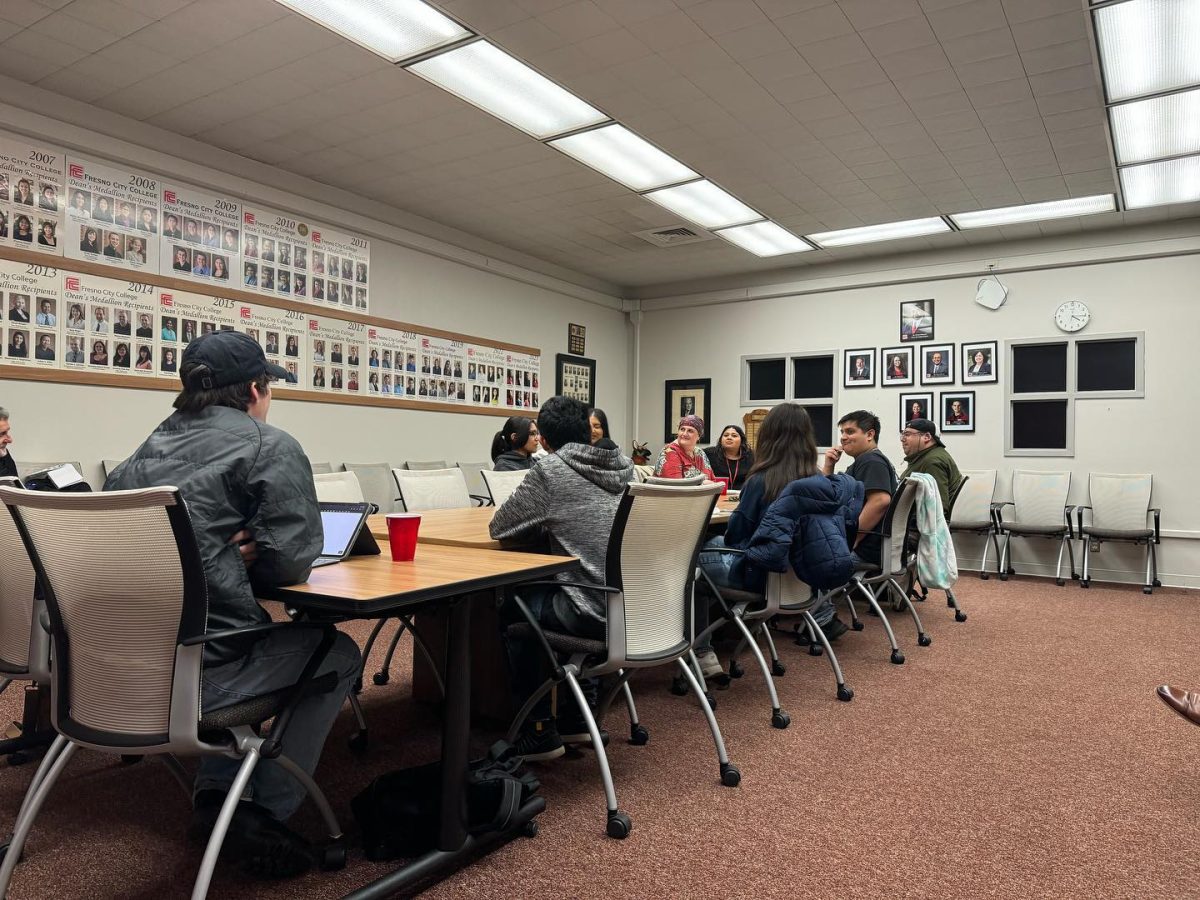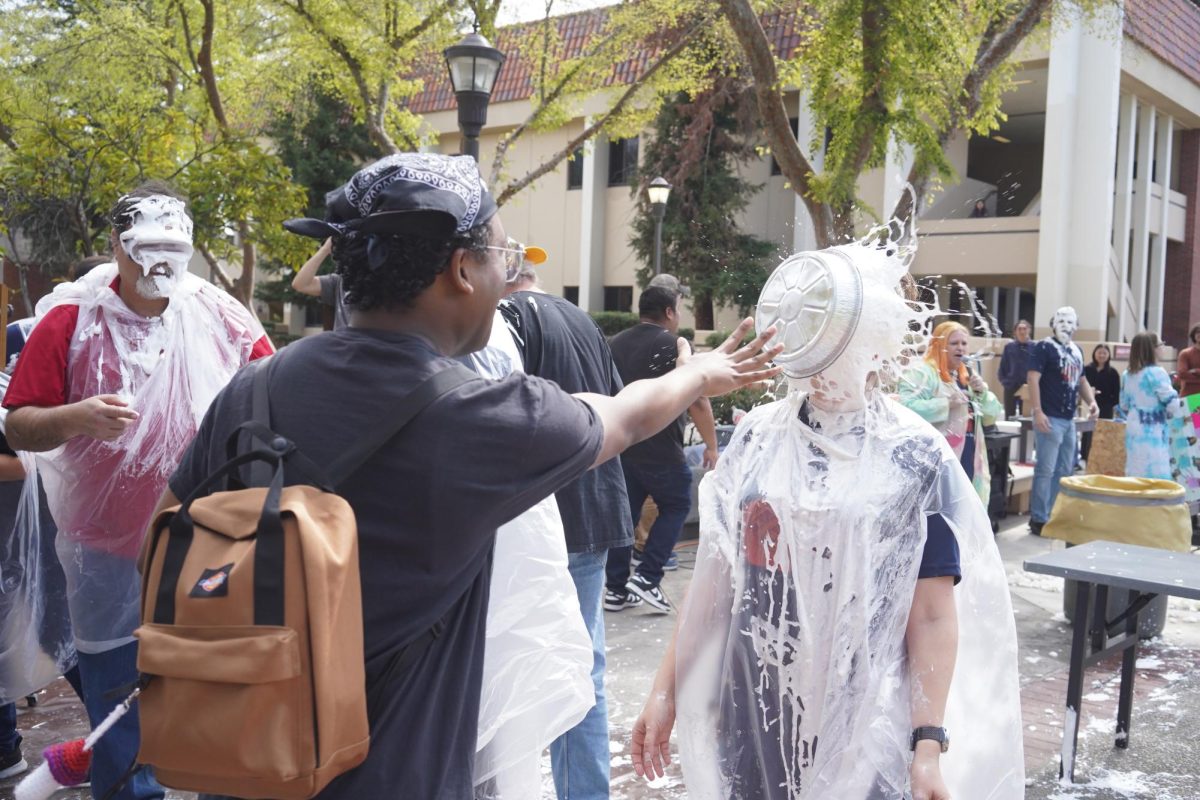The restriction on club activities around the fountains at Fresno City College will continue through this semester but will be lifted in the spring of 2010. ASG president, Sergey Saluschev, announced the decision on Monday after a meeting between representatives of the student government, the college administration and the SCCCD police.
“Students’ voices have been heard and taken into account. We’re no longer looking at a complete ban of any activities there,” said President Saluschev. “We found a common consensus that it is important to promote participation in extracurricular activities, however, at the same time remaining mindful of safety issues.”
Saluschev also said the student representatives expressed their concerns about the restrictions, and the administration and campus police explained their reasons. “We kind of found a compromise that perhaps we need to limit the number of canopies used in area [the fountain] and be more selective regarding events taking place there, but overall, the access to the fountain area will be maintained for students,” he said. Others who participated in the meeting about the Oct. 1 decision to restrict club activities near the main fountain area include legislative vice president of the ASG, Phing Lee; president pro tempore, Matthew Roman; Sustainable Actions Club president, Rigoberto Garcia, as well as a number of FCC administrators and the chief of SCCCD police.
The ban will last for the remainder of the fall semester which Saluschev said will not be a problem since no further events are planned until the spring semester. Another meeting is scheduled next week between the student representatives and administrators, during which both sides will create new guidelines for the use of the fountain area. Both sides will aim to keep students happy and free to recruit new members and generate revenue while allowing FCC administrators some leeway with maintaining safety on campus.
Ban on Activities, effective Oct. 1
Monday’s agreement will begin to resolve the controversy started with the administration’s decision to restrict club activities around the fountains near the forum halls at Fresno City College. According to the letter announcing the rule, “Fresno City College is no longer approving events to be held in the Main Fountain Area. Additionally, there will be no event set-ups on Mondays or Fridays. The only exceptions may be recognition of national holidays. At least one advisor must be in attendance for the duration of the club sponsored event.” This rule took effect on Oct. 1.
Sergey Saluschev had explained that the letter was sent out to clubs and club’s advisors, specifying what those rules and guidelines were. “It has come to light that clubs are no longer able to use the fountain area. . .There’s been a limit on how often you can fundraise; also, there’s been a strict enforcement that a club advisor has to be present there at all times. There’s been a little bit of limit with regard to days and when you can fund raise.” Saluschev added that the ruling severely limited club activities, particularly fund raising as “Food sales will be limited to Club Rush events,” which means clubs can only sell food twice a semester and that other fund raising requests must be made 30 days prior to the event.
This ban was handed down by Fresno City College administration due to a concern regarding access of emergency vehicles on campus. A letter sent out by Azari clarified the reason for the administration’s decision. “Earlier this semester, we had a disruption on our campus in the Main Fountain area, and there was considerable concern about safety for everyone on campus as well as access for emergency response vehicles. We took immediate action to place restrictions on the use of the Fountain area, and our actions created concerns.”
The president’s letter continues, “I acknowledge that we should have had a greater dialogue regarding this issue before making that decision…I want to ensure you that I understand that student organizations benefit students in many ways, and that they need opportunities to generate revenue to support their activities, especially in these difficult economic times.” The president’s letter asked that the college community stays patient “as we go through this process.”
Concerns about Shared Governance
The decision is a problem, not so much for the use of the fountain area by clubs, but because of the disregard for shared governance, said Sergey Saluschev, President of the ASG. “The fountain area is not really at the core of the problem, the core of the problem is shared governance. Such a big decision that impacted so many students should have been made with the consultation of a student representative. It’s the principle of shared governance that this institution claims to practice.”
Rebecca Slaton, chairperson of the Shared Governance Committee of FCC’s Academic Senate, describes the principle of shared governance as, “ensuring that all constituent groups are involved in decisions affecting the campus, In other words, shared governance should be a process whereby students, faculty and administration, and staff have the opportunity to present their opinions and views regarding decisions that may affect the college.” The council is made up of faculty, staff, administration and ASG representatives who deal with the decision making process and are supposed to have a say in all decisions made on campus.
And because the administration made this decision regarding club activities in the fountain area without consulting shared governance, many club advisors and staff raised concerns. Slaton said, “I think that it is unfortunate that the decision to ban student clubs from the water fountain area was made in haste and did not involve a shared governance process. It is my understanding that banning clubs from the area has resulted in a lack of revenue needed to support the clubs’ activities…It is my hope that this matter can be resolved by bringing together constituent groups to discuss reasonable alternatives.” It seems Slaton’s wish has been fulfilled by the compromises reached at Monday’s meeting.
Club advisors and other faculty members had also highlighted Slaton’s concerns as well as others they have with the decision: In a letter sent to Azari on Nov. 16, the advisors had written, “We are writing to express our concern about the administration’s recent decisions regarding club activities on our campus. We believe the decisions are overly reactive responses to one student’s behavior, and represent unfairly restrictive treatment of some of the most actively involved students on our campus…Therefore, we fully support the ASG and club members in their protest against the decisions…We are also disappointed that the administration did not involve club advisors in the decision-making process and did not provide advisors with additional information that they could distribute to club officers and members.” The letter, which was signed by every club advisor on campus, can be seen in full near the end of this article.
Clubs have been hard hit by this ban, not so much for the lack of food sales but a lack of foot traffic. Because the fountain area is off limits, clubs must now use the free speech lawn between the bookstore and cafeteria for all of their planned events. Since the fountain area is the most trafficked area on campus, less people participate in the events and clubs have experienced a loss of funds and new members. Matthew Roman, president pro tempore of the ASG, said “It [the ban] has been extremely detrimental for clubs. If you look just at Lambda Alpha Epsilon, every time they’ve had a fund raising e
vent, they’ve been in a hole since the ban.”
The Skateboard Incident and Its Impact on Ban
Advisors and students say they believe that the actual reason for this ban was due to an event which took place on campus on Sept. 25, although they acknowledge that emergency vehicle access is important. On that day, the NAISA (Native American Intertribal Student Association) club was celebrating Native American Day around the fountain. A student, Gregory Moultrie, became involved with police when he refused to relinquish his skateboard upon officer request, as riding skateboards is currently not allowed on campus. Eventually, Moultrie’s cousin Demone walked up and began interfering with the altercation and refused to step back when asked. As a result, officers attempted to arrest both men and an aggressive scuffle ensued.
It was at this point that NAISA representative, Mischelle Loscano, got on the microphone that was being used for the club event and began shouting, “police brutality”, telling students to tape the event with their cell phones. Many students did and the videos were posted on Youtube and all over the airwaves as accusations of brutality were levied against the SCCCD police. Unfortunately, further details were not released on the matter to clear up impressions of a cover up of the accusations of police brutality.
Details released by campus police show that only one of the two cousins arrested by the police on that day was an actual student at FCC, and both have extensive criminal records. Additionally, Moultrie was under the influence of alcohol at the time of the arrest. The college administration raised the larger concerns regarding brutality accusations, student safety, and ability of law enforcement officials to deal with possible safety risks like non-student criminals. They also expressed concerns for campus police in tense situations such as the one on Sept. 25 as they attempt to keep a crowd under control while a student incites the crowd with accusations of police brutality.
In spite of all of this, the ASG president said, “It would not be fair for me to say the administration is acting as a big dictator who dictates and directs all the decisions on campus.” Saluschev said, “Overall, I have to say that the administration is making a big effort to create an inclusive environment to allow students to participate in the decision making process.”






